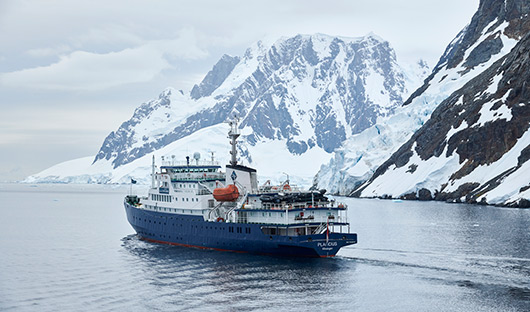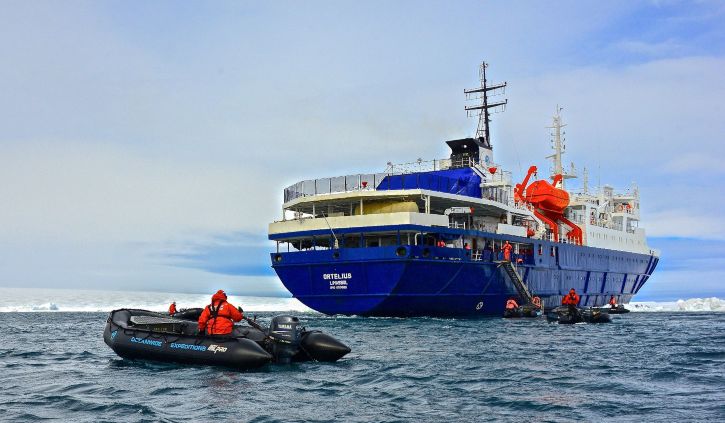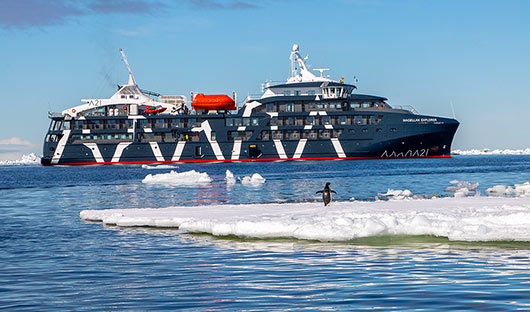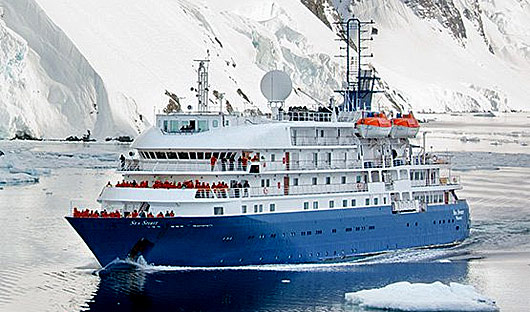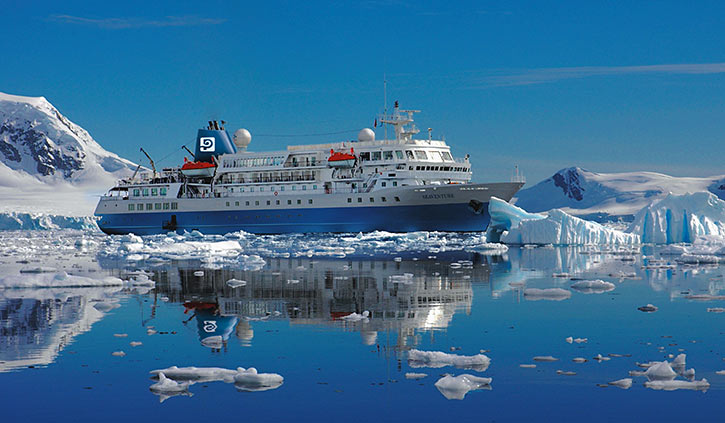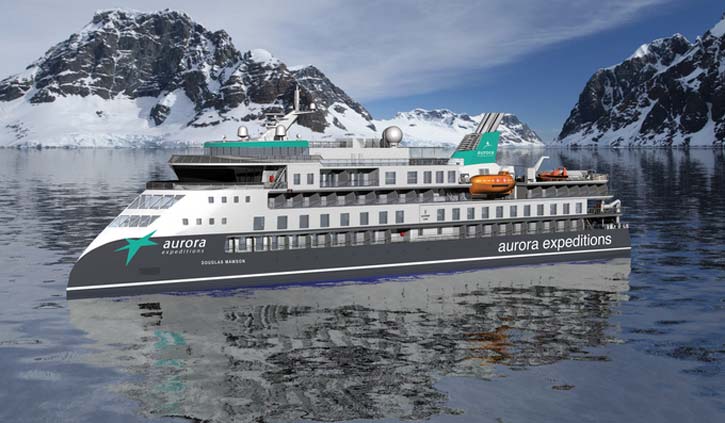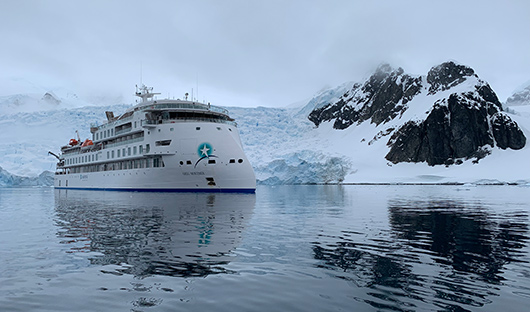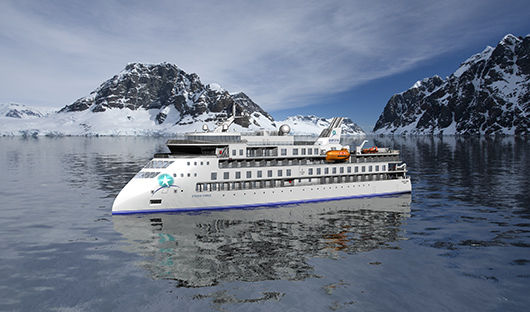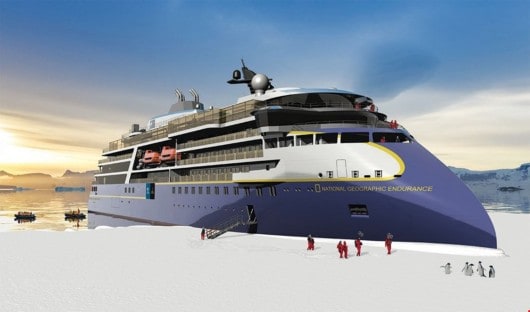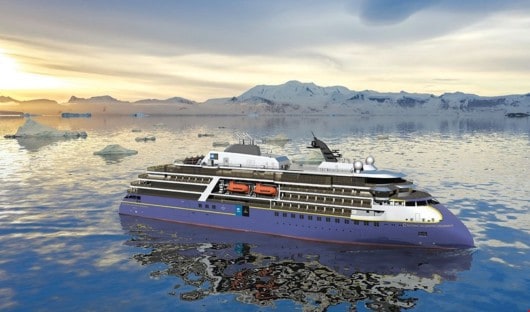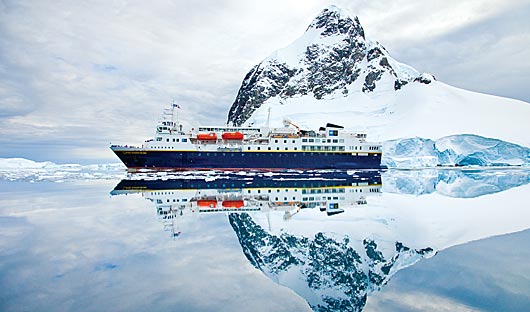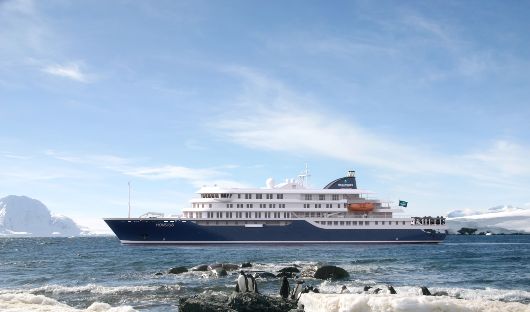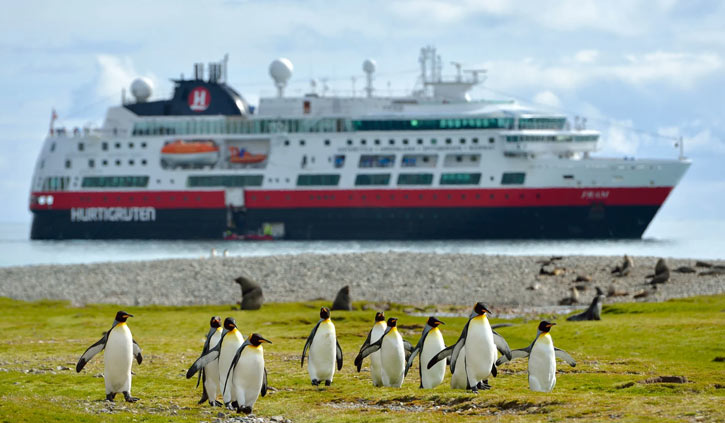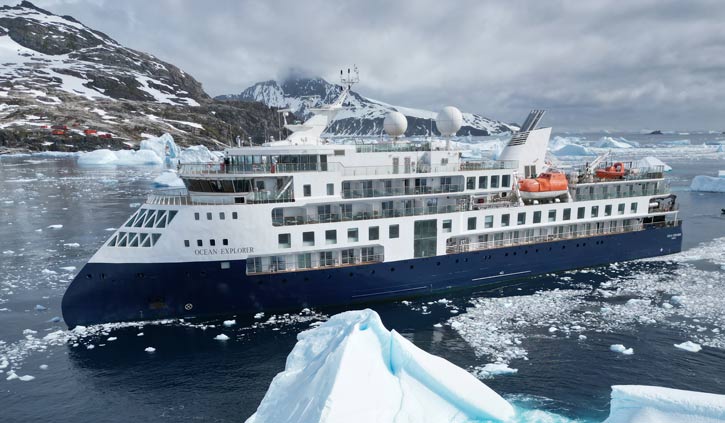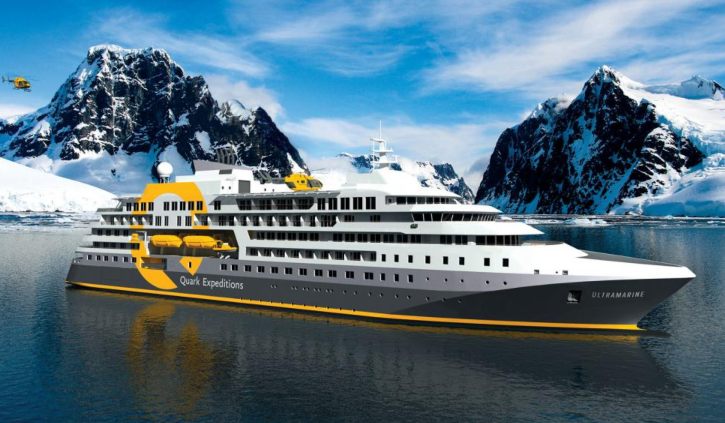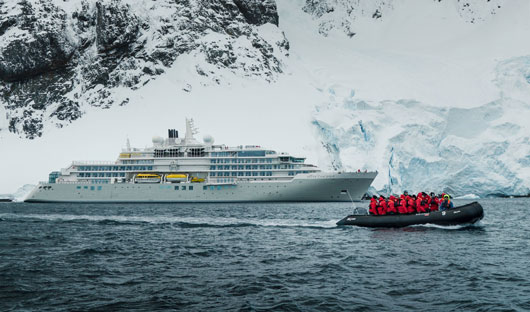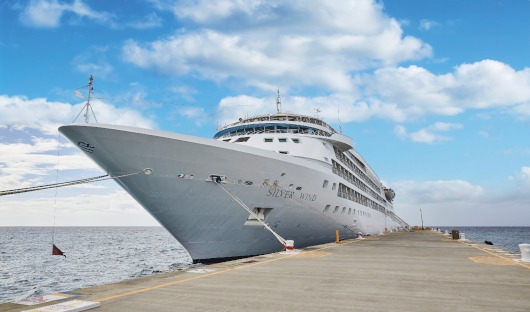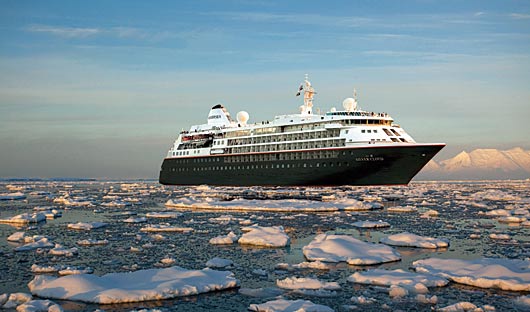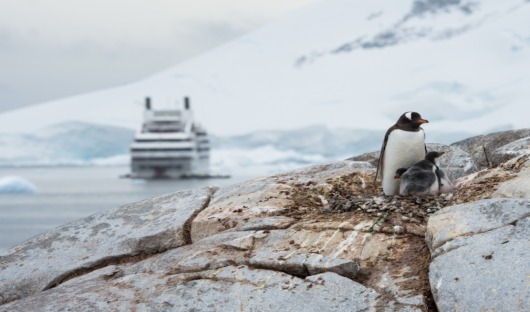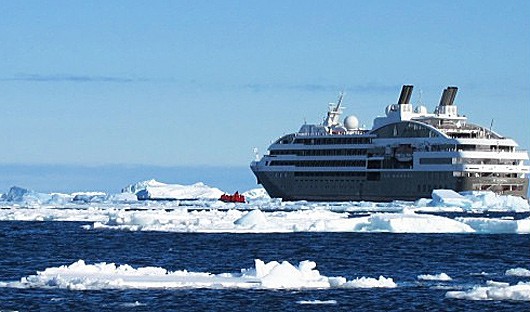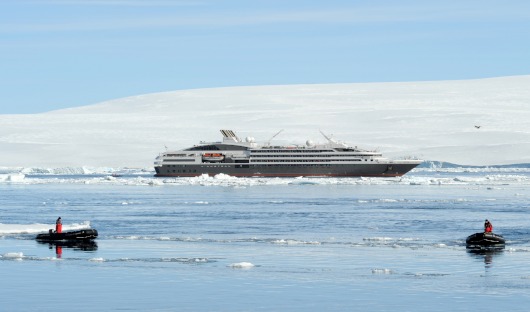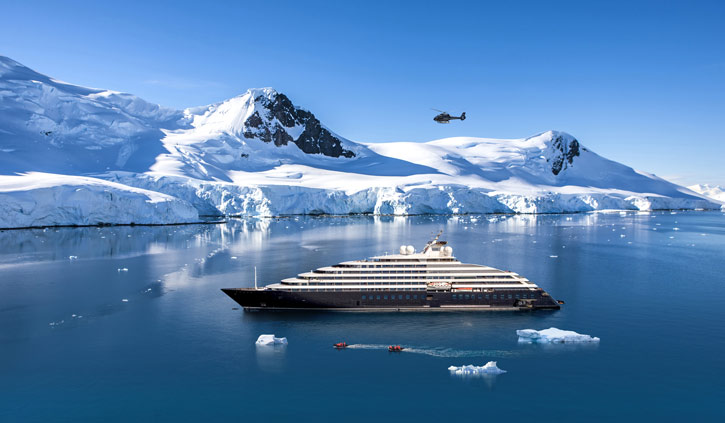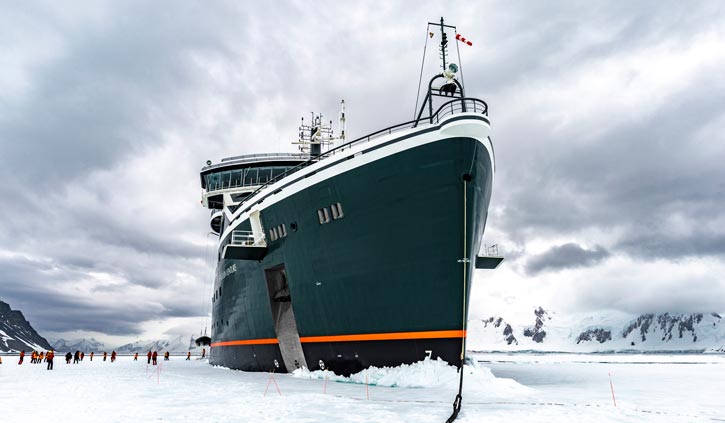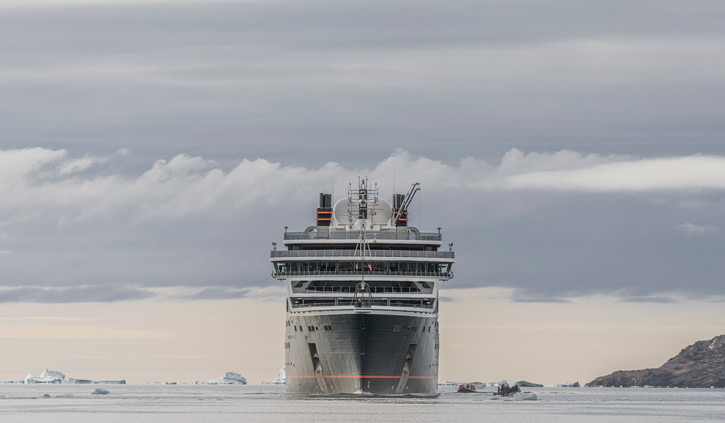
Falkland Islands
The sub-Antarctic island group of the Falkland Islands has much to offer. Voyages that visit the Falklands are between 18 and 22 nights in duration and, far more than just a convenient break in the crossing to South Georgia, the islands are a highlight of any of these voyages. The wonderful landscape, often pastures and rolling hills, is reminiscent of more northern climes than of the sub-Antarctic (at least on a warm day!) and offers some great walks.
There are many scattered reminders of the 1982 Falklands War (referred to locally as ‘the conflict’) and an excellent museum in Port Stanley details the events of this recent history. But it is the wildlife that is usually the high point of any visit here: five species of penguins, two endemic bird species – the Falklands flightless steamer duck and Cobb’s wren – as well as sea lions and elephant seals. The island group is of global significance for three bird species, having 40% of the world’s Southern Giant petrels, 30% of its Gentoo penguins and 65% of the world’s Black-browed albatrosses.
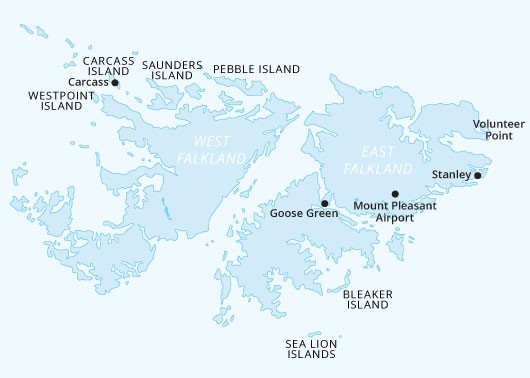
HIGHLIGHTS
West Point Island – Black-browed albatross
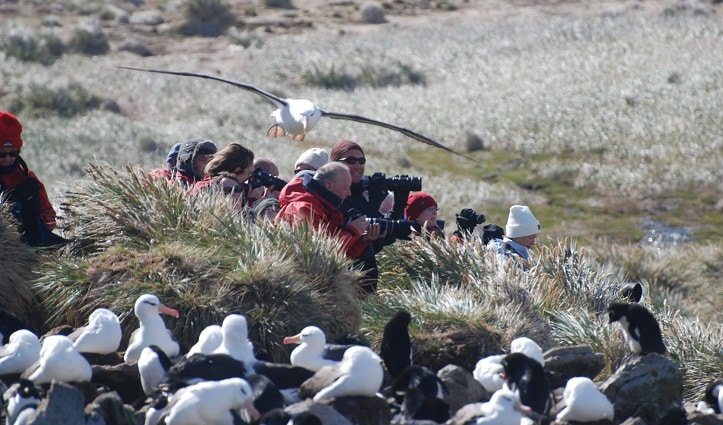
West Point Island offers many things to any visitor. It is a working sheep farm and often an excursion here will conclude with a cup of tea and a slice of home made cake as well as the opportunity to understand life on a remote sheep farm. A reasonably easy (level and not too steep or long) walk across the saddle of the island affords a wonderful visit to a black-browed albatross colony at Devil’s Nose. Mixed in amongst the 2,000 albatross you’ll also find rock-hopper penguins.
You’ll also likely encounter ruddy-headed and kelp geese, Falklands steamer ducks, long-tailed meadow larks, striated caracaras (locally known as ‘Johnny Rooks’) and Cobb’s wren.
Saunders Island
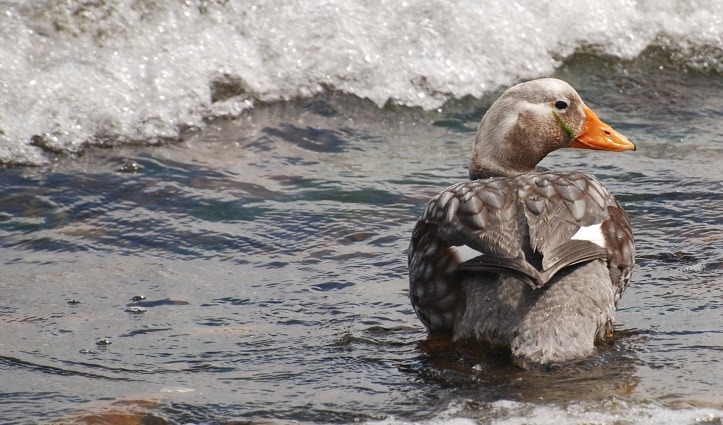
A stunning island with three small peaks, the highest being Mt Richards (457m). Sandy beaches are home to a small breeding colony of Southern elephant seals at Elephant Point. Birds for which the site is of conservation significance include Falkland steamer ducks (250 breeding pairs), Ruddy-headed geese, Gentoo penguins (6700 pairs), Rock-hopper penguins (6900 pairs), Macaroni penguins (4200 pairs), Black-browed albatrosses (11,000 pairs) and White-bridled finches.
Birds of the Falklands

The incredible bird life of the Falkland Islands is awe-inspiring. Some of the species you may encounter include; black browned albatross, blackish oystercaster, brown hooded gull, chilean wigeon, dark faced ground tyrant, dolphin gull, double banded plover, Falklands flightless steamer duck, Falklands grass wren, kelp geese, long tailed meadowlark, magelannic snip and night heron (just to name a few!). What many would argue as the stars of the bird show are the incredible numbers of penguins on show including the Rockhopper, Magellanic and gentoo penguins.
Port Stanley
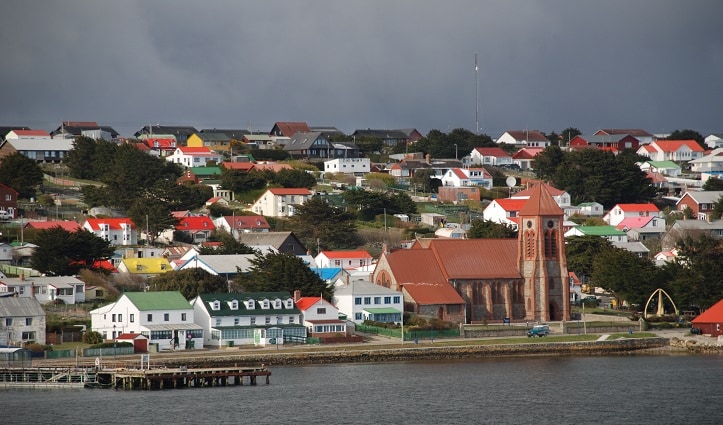
The capital of the Falklands is a small community on the edge of a sheltered harbour. There are many things to do here: a visit to the museum is time well spent, while a walk along the shore to the wreck of the iron barque, Lady Elizabeth, that has lain there since 1936 will offer some magnificent photographic opportunities. There are several good shops for locally produced artwork as well as the opportunity to enjoy a pint in one of the three pubs.
FALKLAND ISLANDS SHIPS
Expedition
Expedition ships have a greater emphasis on maximising time off the vessel or out on deck. The expedition team works closely with the ship’s captain and crew to get you out exploring on the Zodiac dinghies and on shore as much as possible. Most voyages also offer kayaking and sometimes camping. Cabins are simple and comfortable, the food excellent. The ships are stable, fast and manoeuvrable.
Expedition-Luxury
As the name suggests these ships are a hybrid of an Expedition Ship and a Luxury Ship. Focusing on maximising opportunities for exploring as on an expedition vessel but with the added comfort of having larger, more comfortable cabins and common areas. Generally cabins are larger or perhaps the ship is newer than an Expedition ship. The cuisine is of a very high standard.
Luxury
These luxurious ships combine more traditional-style ‘cruising’ with an Antarctic adventure. They offer large, very comfortable cabins with en-suite facilities and many have private balconies. The experienced expedition team enable you to explore the Antarctic Peninsula with Zodiac dinghies and come home to an exquisite ship with superior comfort and excellent cuisine options.
For more information on the ships and travel options we offer, call 1300 784 794 or email contact@antarcticatravelcentre.com.au


